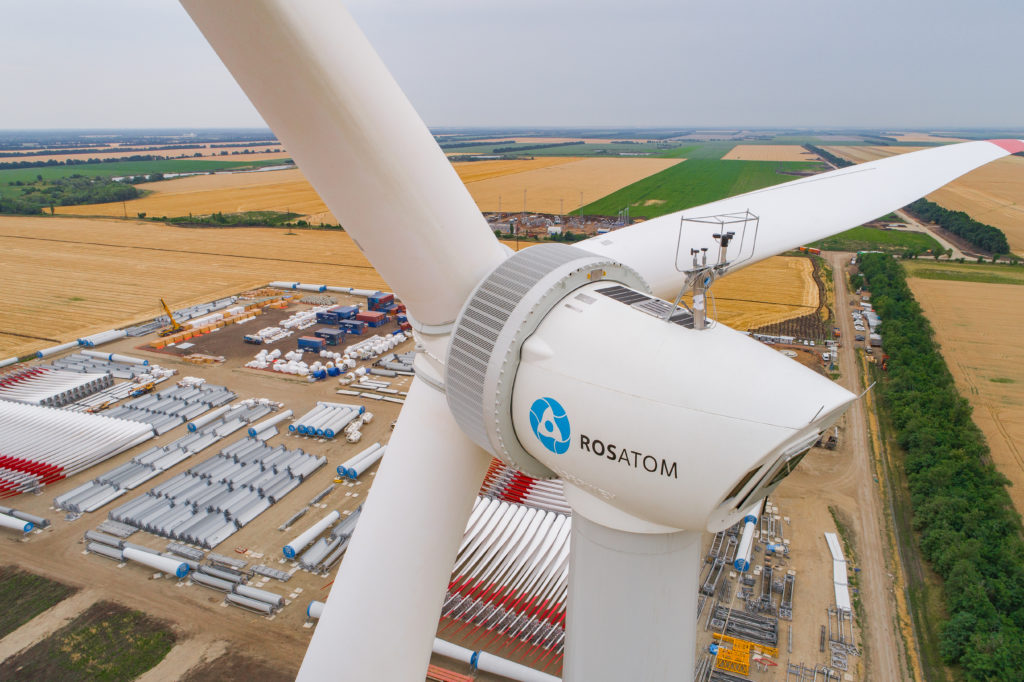
With an installed capacity of 160 MW, the wind power station consists of 64 wind turbines. As confirmed by the Russian Ministry of Industry and Trade, 68% of the wind farm equipment is sourced locally.
“Kuzminskaya is our eighth wind farm in Southern Russia and the sixth in the Stavropol Krai. We did not suspend its construction despite the sanctions pressure. By now, it has fed the first 100 MW of electricity into the national power grid. We managed to rearrange our supply chains within a short time, having replaced the withdrawn technology with Russian know-how and supplied our production facilities with necessary parts and components. Kuzminskaya is our first wind farm fully built with the new supply chain strengthening technological sovereignty of the wind power sector,” NovaWind CEO Grigoriy Nazarov said.
“The commissioning of Kuzminskaya, the sixth straight wind farm in the Stavropol Krai over the last few years, is yet another step Stavropol has made towards the green energy development in a partnership with Rosatom. As soon as in late 2023, the share of wind, solar and hydro in Stavropol’s energy mix will surpass 12%. The new capacity commissioned is our joint contribution to Russia's technological sovereignty and decarbonisation of the economy. With green energy, the Stavropol Krai reduces its carbon footprint by 900,000 tons of greenhouse gases per year by giving up on conventional energy sources. Stavropol will cut down its annual carbon dioxide emissions by 1.3 million tons by 2025,” Stavropol Governor Vladimir Vladimirov said.
For reference:
NovaWind is Rosatom’s wind power division consolidating efforts of the Russian nuclear corporation in advanced areas of the energy generation technology. Established in September 2017, the company accumulates Rosatom’s competencies in wind power generation, from design and construction to mechanical engineering and operation of wind farms. As of today, NovaWind has commissioned 880 MW of wind power capacity. By 2027, Rosatom will put a total of about 1.7 GW of wind capacity in operation.
A source of electricity for industry and households, wind power paves the way for a progressive social and economic development of the country. Russia continues to upgrade its power generation facilities, including nuclear capacity, These efforts are fully in line with the current trends towards digitalization and import substitution. Low-carbon power sources already account for nearly 40% of the Russian energy mix. With the share of wind and nuclear power growing, low-carbon generation will only expand in the future.
Russian partners of Rosatom’s wind power projects increase the output of necessary systems and equipment to strengthen the country’s technological sovereignty. Rosatom Group companies are also involved in the production of domestic components, and one of them is Rosatom's Nuclear fuel division TVEL. The company will launch end-to-end production of rare-earth magnets by 2027. After the factory reaches full capacity in 2028, it will produce 1,000 tons of magnets annually with the possibility of increasing the output to over 3,000 tons after 2030. Rosatom has also announced its composite materials division will launch production of wind turbine blades.